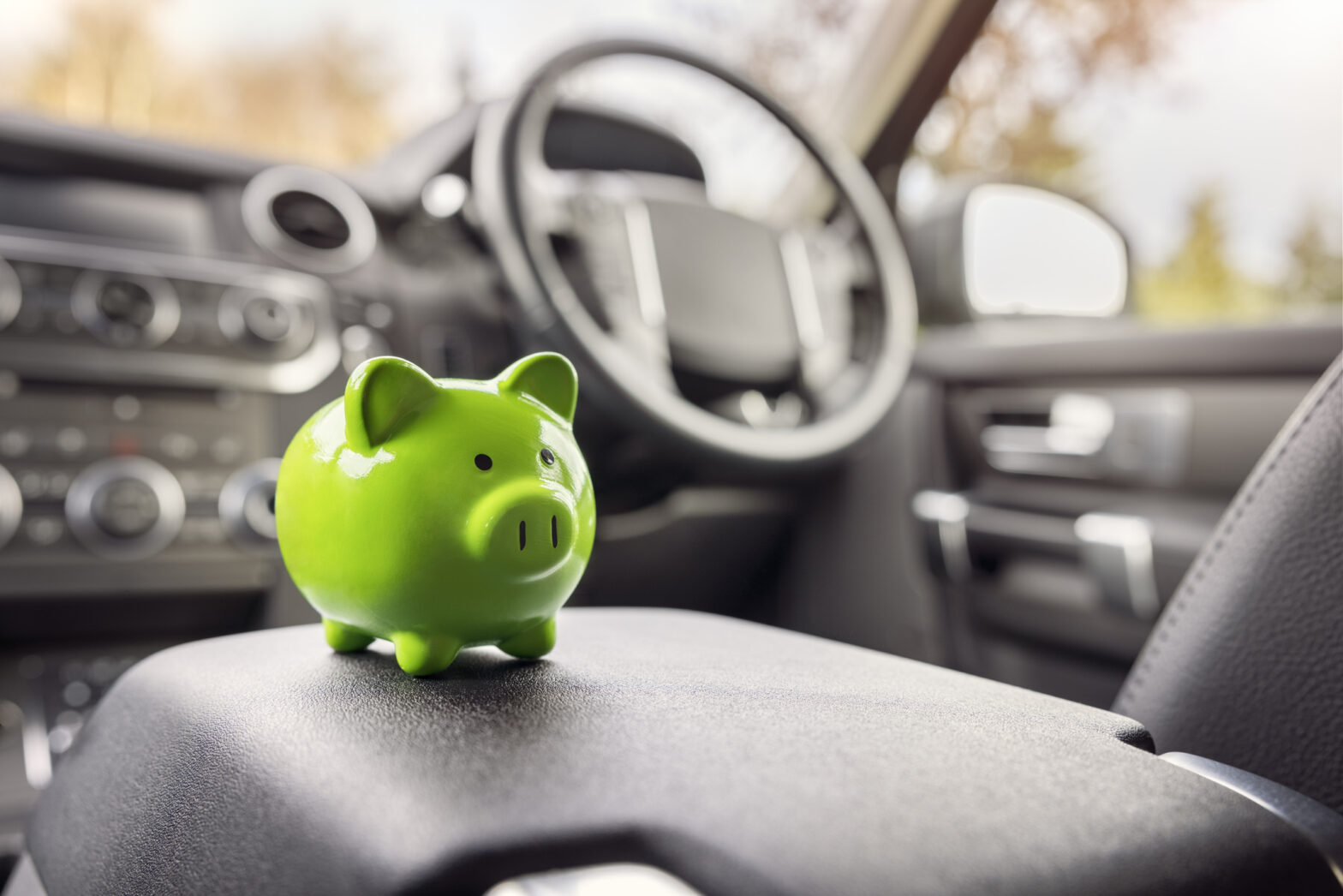UPDATED: If you have a car that you use for business, then the chances are that you will have to pay company car tax. But what is company car tax? And how much will you have to pay?
In this article, we’ll look at what the tax is, any changes you should know about, whether petrol or electric impacts how much you pay in company car tax, and the best way to reduce company car tax.
When is a vehicle a company car?
A vehicle is a company car if your employer has given it to you as a company benefit on top of your annual salary.
You should be able to use the vehicle for your personal use outside of work hours.
Even if the only time you ever use the car personally is for commuting, that is still considered a perk and means you have to pay tax.
>See also: Is it better to buy or lease a car for your small business?
What is company car tax?
How much company car tax you’ll play depends on:
- How much you earn each year
- The CO2 emission bracket of the car
- The P11D value of the vehicle
To work out how much company car tax you’ll need to pay, HMRC will first consider which CO2 emission band it fits into.
The amount of company car tax you’ll pay can be calculated with a simple sum: the P11D value multiplied with the CO2 emission bracket is called the Benefit-in-kind value, often abbreviated to BIK.
The BIK value is then multiplied again by the income tax bracket you fall into (20 per cent, 40 per cent or 45 per cent).
Alternatively, you can use a company car tax calculator provided by His Majesty’s Revenue & Customs.
Company cars and your tax code
HMRC calculates your tax code mainly based on your income and any applicable company benefits and allowances.
Your tax code should include your company car benefit and any other company benefits, for example a health scheme.
The responsibility to check the accuracy of your tax code is with you so you should review your tax code regularly to make sure you don’t overpay or underpay tax.
In circumstances where your company car benefit changes you should see your tax code adjust accordingly. In a similar way if you stop receiving a company car benefit your tax code should be altered to reflect the change.
You can find your tax code online by using the HMRC app which is free to download or in your personal tax account. HMRC gives you some online options to review and change your tax code or you can call them on 0300 200 3300 to speak to an advisor.
Company cars and your self assessment tax return
For individuals who complete a self assessment tax return, don’t forget to enter your company car and any fuel benefit figures in the relevant employment section of your tax return.
You should use the figures from your P11D, which your employer will give you around May time each year.
The boxes on your P11D will have a reference which corresponds with the employment section of your tax return to help you avoid putting figures in the wrong place.
It’s best practice to check that your P11D figures are included correctly on your tax return by going through your online tax calculation before submitting your tax return to HMRC.
What if I drive a hybrid?
If your company car has CO2 emissions of 1 to 50g/km, the value of the car is based on its zero-emission mileage figure, or “electric range”. This is the distance the car can go on electric power before its batteries need recharging. Company car tax rates vary between 2 per cent and 14 per cent depending on CO2 emissions (below 50g/km) and the car’s electric-only range.
Company car tax on electric cars
Electric vehicles are not entirely exempt rom company car tax, yet the rate of tax is much lower for fully electric vehicles. Currently, electric vehicles are exempt from paying Vehicle Excise Duty (VED) until 2025, with BIK rates fixed at only 2 per cent for the 2023/24 and 2024/25 tax years.
>See also: How to buy an electric car through your business
How can I lower my company car tax?
There are a few ways you can lower it. While you can’t really lower your tax bracket nor can you necessarily change the fuel type of your car, there are a few things you might want to consider when lowering your company car tax.
Opt for a cheaper car
This sounds obvious, but even forgoing something such as a satnav can have an impact on the P11D value. A lower P11D value means potentially lower company car tax.
Lose the optional extras
Some optional extras such as larger wheels, tow bars and roof windows can contribute to increased CO2 emissions and fuel consumption, raising overall tax rates.
Choose a car that emits less CO2
You don’t have to go for an electric car to lower your carbon footprint. There are plenty of petrol cars that emit a low amount of CO2 and a fair few diesel cars that are the same. If you want to lower your company car tax, then we recommend looking at a car that emits a lower amount of CO2.
Paul Donohoe is founder and director of Tax Rebate Services
Best small business company cars
Electric – BMWi4
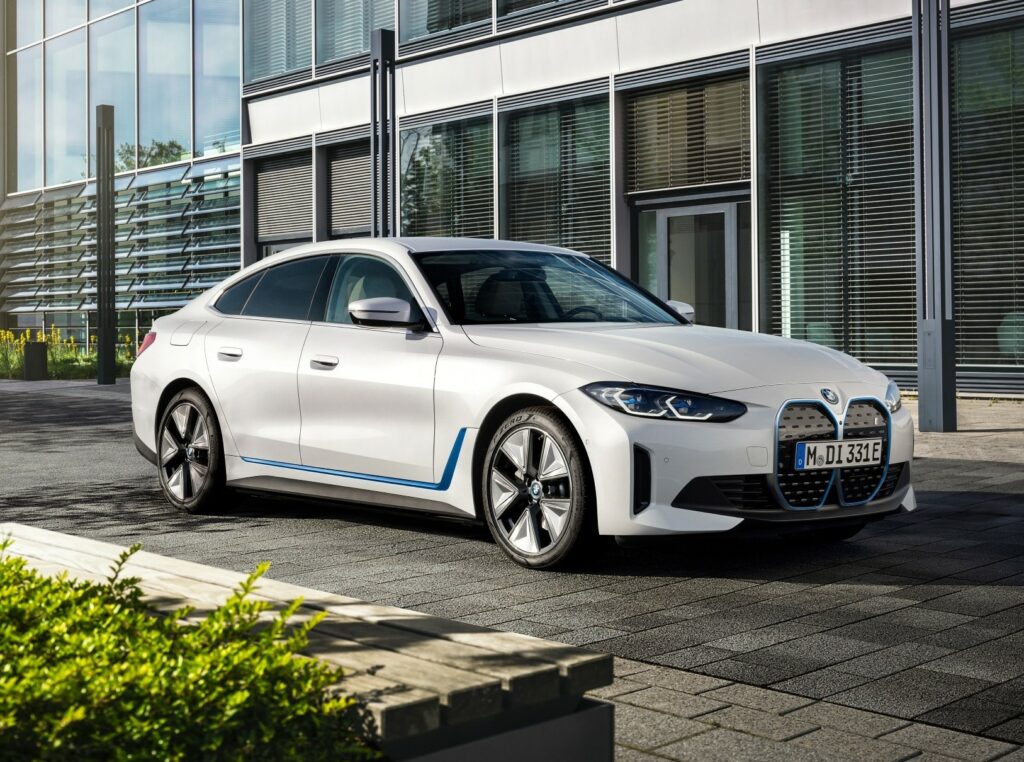
Winner of The Times and Sunday Times Motor Awards 2022 in the Company Car of the Year category, the i4 is the fully-electric version of that stalwart of the junior executive, the BMW 3 series.
- CO2: 0g/km
- BIK tax rate: 2%
- EV Range: 366 miles
- Price: from £49,995
Hybrid – Vauxhall Astra
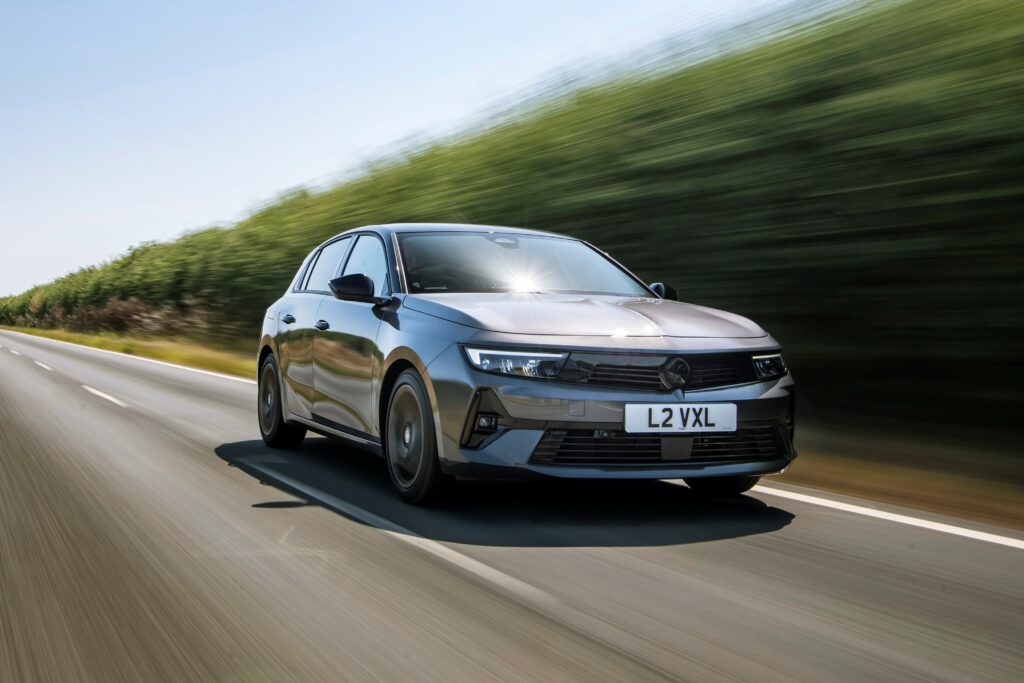
This plug-in Astra offers a punchy 178bhp hybrid powertrain and 43 miles of electric-only range, but only attracts an 8 per cent BIK rate compared to 30 per cent for the equivalent petrol model. And its ergonomically-designed seats, approved by the German Campaign for Healthy Backs, will be welcomed by road warriors who spend their time tearing up and down motorways.
- CO2: 23-24g/km
- BIK tax rate: 8%
- EV Range: 43 miles
- Price: from £37,285
Hybrid – Skoda Superb iV
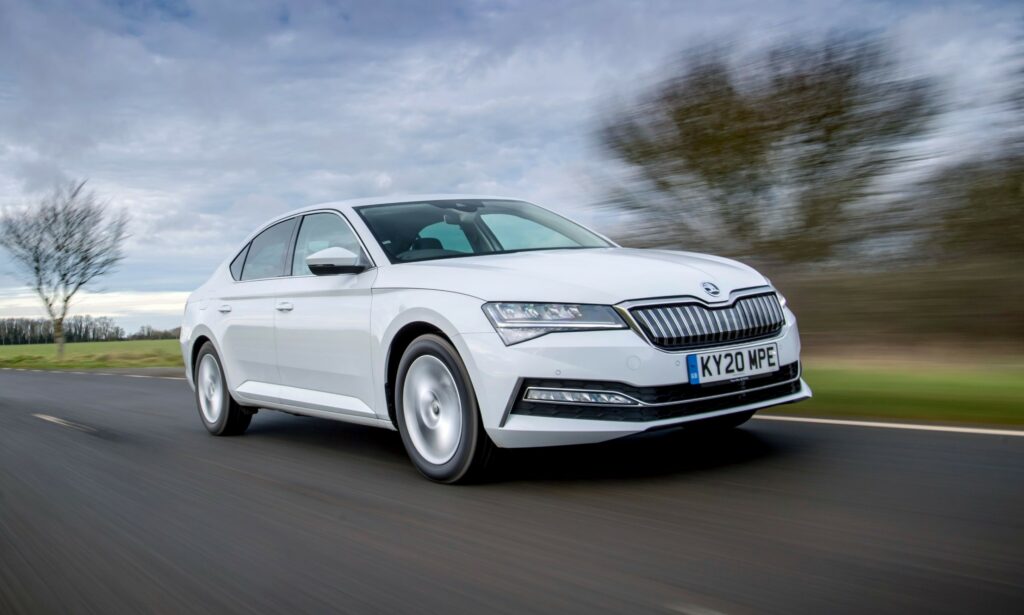
Skoda Superb iV offers everything that’s good about the Octavia – a roomy interior, good build quality and a cossetting ride – but with exceptionally low emissions, according to What Car?
- CO2: 23g/km
- BIK tax rate: 10%
- EV range: 34 miles
- Price: from £40,240
Electric – Tesla Model 3
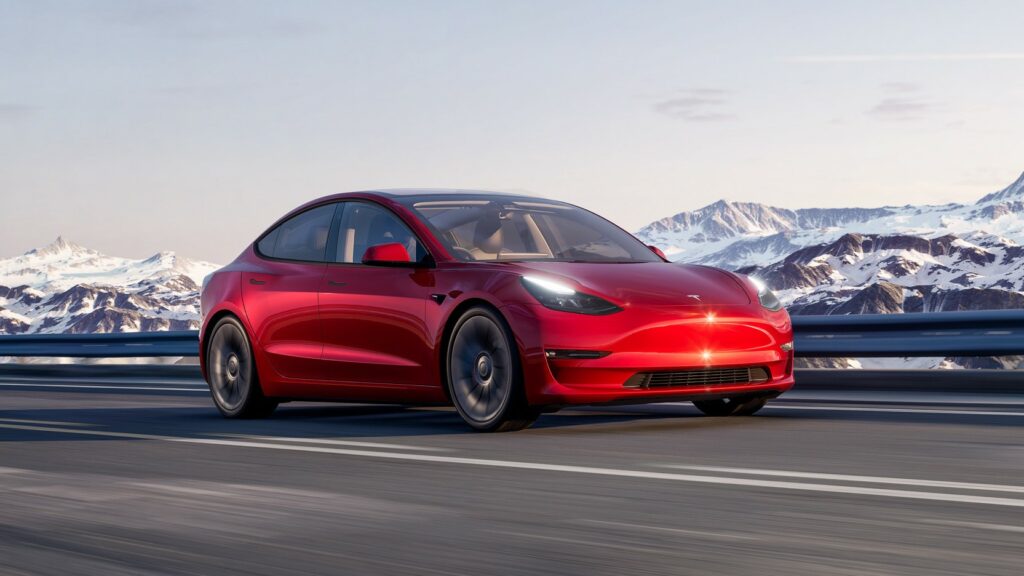
Truly beautiful with a space-age minimalist interior, the Tesla Model 3 has become one of the UK’s best-selling cars. This less-pricey model mixes performance and long range with a spacious and techy interior.
- CO2: 0g/km
- BIK tax rate: 1%
- EV range: 305 miles
- Price: from £42,990
Electric – MG4
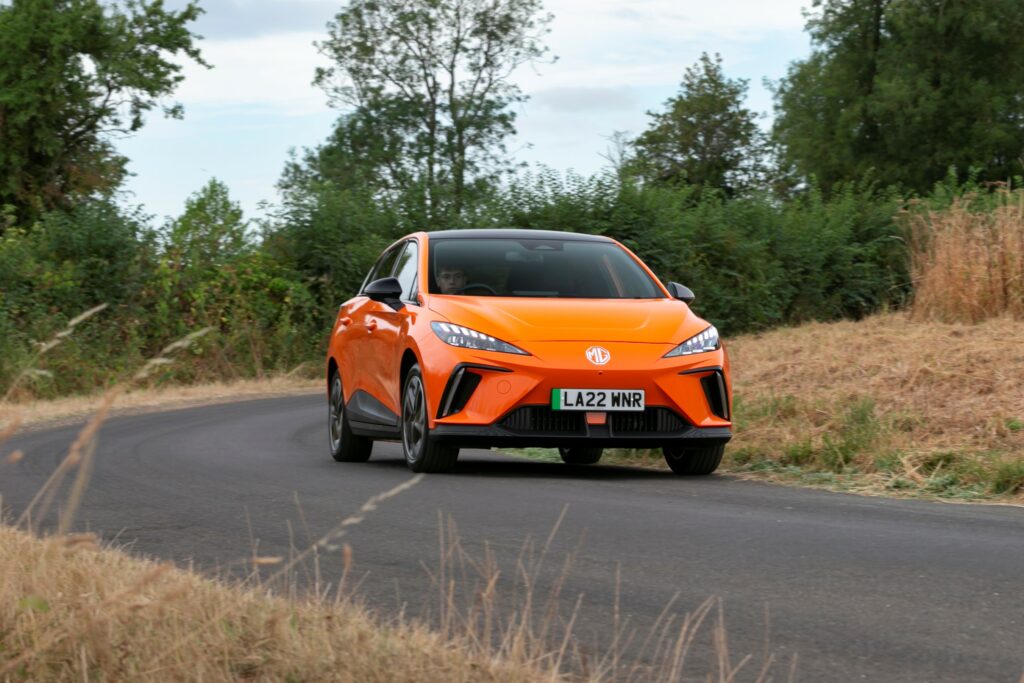
MG4 has become the most searched-for new car in Britain, according to Autocar. This Chinese-built fully-electric hatchback is a good entry-level EV compared to higher-priced Mercedes, Jaguars and BMWs and offers an affordable company car for small business owners to make the transition to all-electric with low day-to-day running costs.
- CO2: 0g/km
- BIK tax rate: 2%
- EV range: 218 miles
- Price: from £25,995
